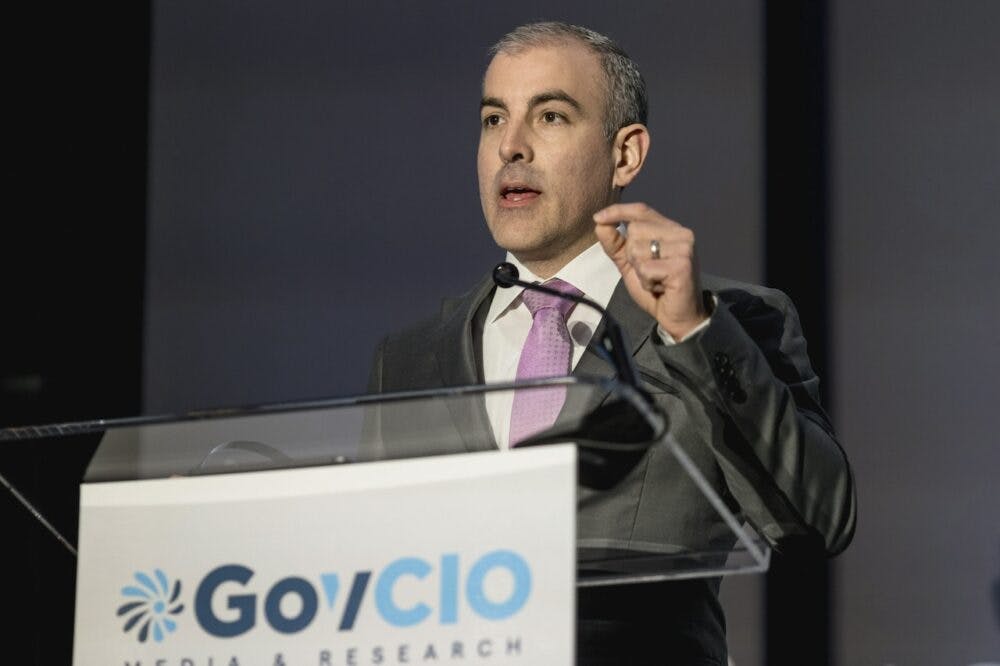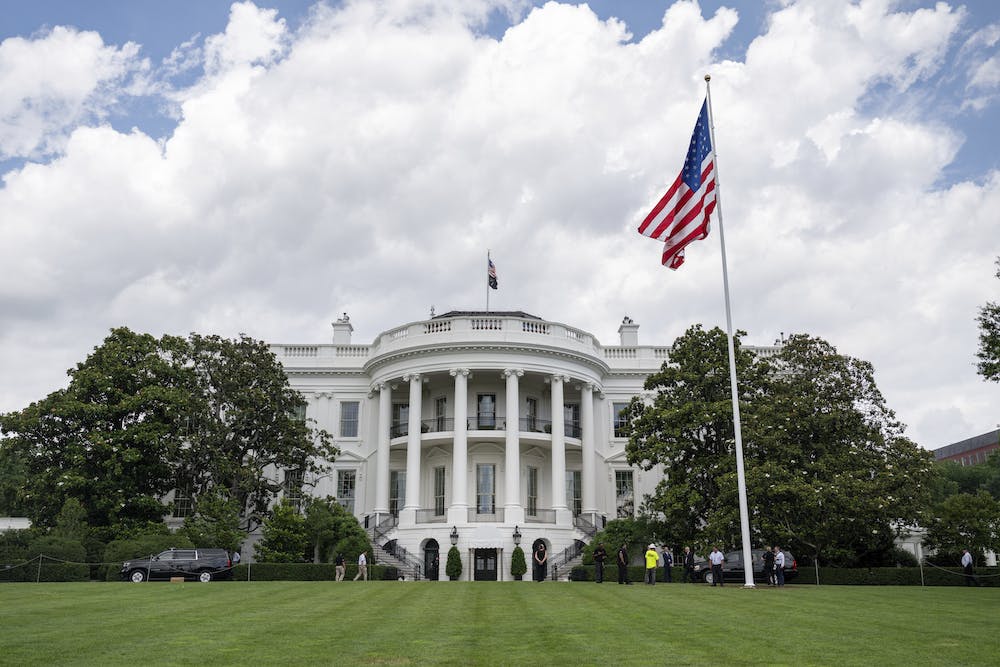Energy Leaders Eye Next Phase of AI
Leaders from DOE see AI accelerating operations and improving partnerships.

The Department of Energy sees artificial intelligence as a key enabler to the future of its mission as it anticipates release of its second playbook soon.
The October White House executive order on AI laid out guidelines on how agencies should approach the emerging technology, including DOE. The order tasked the agency with developing standards to “address AI systems’ threats to critical infrastructure, as well as chemical, biological, radiological, nuclear, and cybersecurity risks.”
Brian Epley, principal deputy chief information officer at the Department of Energy, told an audience last week at the GovAI Summit in Arlington, Virginia, that the department is leading the way for agencies when it comes to integrating AI into their department’s operations.
Epley said the department has been using AI for over a decade in science, research, and national security. Energy, he added, has been using the emerging tech in high performance computing for COVID-19 research and supporting the Coast Guard’s data analysis during the Maui wildfires.
Epley cited partnerships with other federal agencies like the departments of Veterans Affairs and Health and Human Services as well as commercial and international partners as important in building fast in AI and sticking to the agency’s mission.
“Our mission is measuring climate change, climate, resilience, clean energy, those evolutions. AI is at the forefront of what we’re doing there. We’re looking at scientific discovery and how to use this technology to accelerate that,” Epley said. “We’re moving from legacy technology. … It’s not just about where we’re at today or what the next version of releases, it’s what we’re going to do together and that collaborative partnership.”
Gardy Rosius, associate deputy CIO of architecture, engineering, technology, and innovation at the agency, pointed to the department’s own playbook of AI guidelines, which already developed a version one. A second updated version is on the way that will incorporate some of the ideas laid out in the executive order.
“Some people ask the question, ‘is AI our friend or is AI our enemy?’ My answer to that is, I think AI is our friend but just like a good relationship, there are boundaries. We’re trying to set the boundaries and helping the department to move forward with adoption in a way that we think is consistent with not only our mission, but also with the risks that may be involved,” Rosius said last week.
Rosius also said Energy created AI hubs to improve subject matter expertise and “discovery zones” for the agency’s partners and developers to experiment with the technology in a safe testing He also mentioned that the agency developed a “tiger team” to examine biases and AI and help the department avoid mistakes in adopting the technology that have been made in the past.
This is a carousel with manually rotating slides. Use Next and Previous buttons to navigate or jump to a slide with the slide dots
-

AI Foundations Driving Government Efficiency
Federal agencies are modernizing systems, managing risk and building trust to scale responsible AI and drive government efficiency.
40m watch -

Navy Memo Maps Tech Priorities for the Future Fight
Acting CTO’s memo outlines critical investment areas, from AI and quantum to cyber and space, as part of an accelerated modernization push.
5m read -

DOD Can No Longer Assume Superiority in Digital Warfare, Officials Warn
The DOD must make concerted efforts to address cyber vulnerabilities to maintain the tactical edge, military leaders said at HammerCon 2025.
4m read -

New NSF Program Cultivates the Future of NextG Networks
The agency’s new VINES program looks to tackle key challenges like energy efficiency and future-proofing wireless tech.
21m watch -

DHA CDAO Spearheads Master Data Catalog to Boost Transparency
Jesus Caban plans to boost DHA's data maturity through a new master data catalog, governance frameworks and inventory of tech tools.
5m read -

Trump Orders Spark Government-Wide Acquisition Overhaul
As Trump pushes for a faster, simpler procurement system, agencies are leveraging AI and adapting strategies to meet new requirements.
5m read -

Inside Oak Ridge National Lab’s Pioneer Approach to AI
Energy Department’s Oak Ridge National Lab transforms AI vulnerabilities into strategic opportunities for national defense.
22m listen -

A Look at Federal Zero Trust Transformation
Recent developments from CISA and DOD show how government is advancing zero trust quickly.
20m read -

Modernization Strategies to Enable Energy Innovation
Lawrence Berkeley National Lab and Maximus experts explore the modernization strategies driving digital transformation and operational resilience within the energy sector.
33m watch -

DOI Must Modernize Energy to Win AI Race, Secretary Says
Doug Burgum links AI innovation to energy reform as DOI advances digital infrastructure and wildfire response under Trump’s tech agenda.
2m read -

NIST to Release New AI Cybersecurity Guidance as Federal Use Expands
NIST plans to release AI cybersecurity guidance within the year to support safe adoption as federal agencies expand use cases.
4m read -

Federal Zero Trust Forum
The Federal Zero Trust Forum brings together key technology leaders from across government to explore practical strategies and share lessons for advancing zero trust architecture.
Ritz Pentagon City | 1250 S Hayes St, Arlington, VA 22202
















